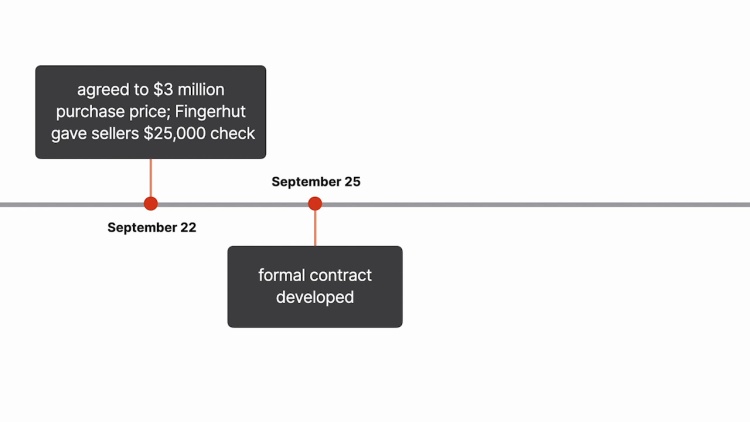Fingerhut v. Kralyn Enterprises, Inc.
Supreme Court, New York County, New York
337 N.Y.S.2d 394 (1971)

- Written by Sean Carroll, JD
Facts
Stanley Fingerhut (plaintiff) was a wealthy and successful stock broker who owned a hedge fund, but also had a history of manic-depressive mental illness. Fingerhut, in the presence of his lawyer, entered into a contract with Kralyn Enterprises, Inc. (Kralyn) (defendant) to purchase the Bel Aire Golf & Country Club. Fingerhut made two payments for what amounted to a down payment in the amount of $225,000. Subsequently, Fingerhut sent a letter to Kralyn stating that he was manic at the time he entered into the contract and attempting to rescind the contract. Kralyn did not agree to rescind the contract. Fingerhut brought suit to recover his down payment and to have the contract rescinded on the grounds that he lacked the mental capacity to contract with Kralyn. Kralyn filed a motion to dismiss, claiming that Fingerhut had the requisite mental capacity to enter into the contract. At trial, Fingerhut presented psychiatrists as expert witnesses who testified that he was psychotic at the time of the execution of the contract. Kralyn presented psychiatrists as expert witnesses who testified the opposite. Similarly, Fingerhut presented witnesses who testified that his behavior was irrational and “bizarre” around the time of the contract’s execution, but Kralyn’s witnesses stated that Fingerhut’s behavior was rational. Fingerhut did not testify.
Rule of Law
Issue
Holding and Reasoning (Lupiano, J.)
What to do next…
Here's why 907,000 law students have relied on our case briefs:
- Written by law professors and practitioners, not other law students. 47,100 briefs, keyed to 996 casebooks. Top-notch customer support.
- The right amount of information, includes the facts, issues, rule of law, holding and reasoning, and any concurrences and dissents.
- Access in your classes, works on your mobile and tablet. Massive library of related video lessons and high quality multiple-choice questions.
- Easy to use, uniform format for every case brief. Written in plain English, not in legalese. Our briefs summarize and simplify; they don’t just repeat the court’s language.





